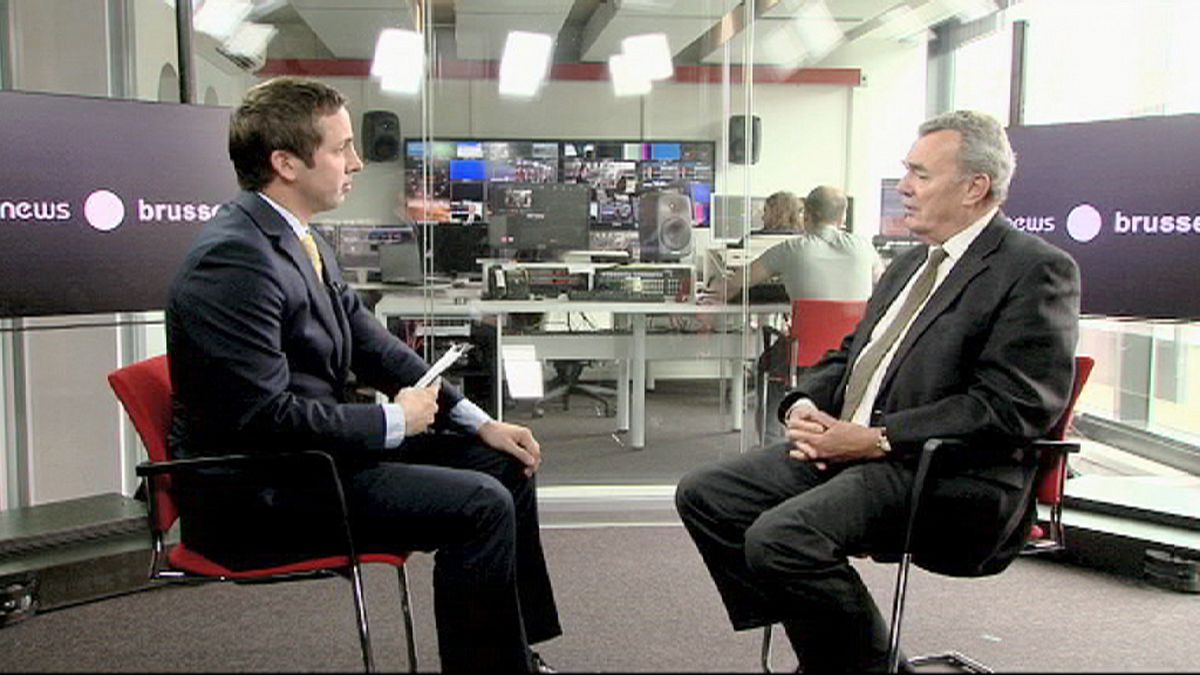Hong Kong, Moscow, Quito, Havana… The United States’ most-wanted whistleblower, Edward Snowden, has either been in these places long-associated with anti-American feelings or is on his way, or maybe just thought about going. Experts have been saying that is to be expected, given how intensely Washington would like to get hold of him. Russia’s president sought the moral high ground in gently telling the US why it hadn’t extradited Snowden.
Putin said: “Any accusation directed towards Russia is ravings and sheer nonsense. We are only able to hand over citizens of foreign states with those countries with whom we have a corresponding international agreement on handing over criminals. I hope that our partners will understand that.”
The US Secretary of State basically told the Kremlin it was harbouring a rampant undesirable.
John Kerry said: “We would hope that as a nation, as a sovereign nation, Russia would not see its interests in siding with a person who is accused of breaking the law in another nation and who is a fugitive from justice according to international standards of law.”
The Cold War foes of yesterday – of course Beijing included – are more polite now. They have important economic and political stakes at risk, if any fails to keep things cordial. Behind the diplomatic niceties, however, none will squander an opportunity to rile the other side, according to analysts familiar with the games nations play – and perhaps scoop useful intelligence in the bargain.
Masha Lipman, Chair of the Carnegie Moscow Center’s Society and Regions Programme, said: “Just showing America that ‘we don’t care about our relations’, we are down to basically a Cold War pattern: ‘the enemy of your government is our friend’. The Russian administration has not gone that far but we don’t know what it’s up to. At any rate, it added to the troubles of the American president and it probably feels happy about it.”
Edward Snowden fled to Hong Kong after leaking details of secret US government surveillance programmes, then flew on to Moscow, evading a US extradition request.
That Snowden the civil libertarian seems to be consorting with states known for their historic infringement of citizens’ rights is an irony Secretary of State Kerry himself highlighted.
Euronews Brussels Correspondent James Franey spoke to Giles Merritt, an expert on security and defence, for his take on the Edward Snowden case and how governments will now react.
euronews:
Giles Merritt, Director of Security and Defence Agenda here in Brussels, many thanks for joining us. We’ve seen some harsh words traded between Moscow and Washington over the past few days over the Edward Snowden case. Do you believe that the relationship between these two former cold war foes is about to get frostier? Or is it just all rhetoric?
Giles Merritt:
It’s clear that Snowden is a hot potato and the Russians are juggling him, trying not to get their fingers burnt. But the real issue I suspect is public opinion. How do you calm the feeling that seems to be right around the world. An awful lot has been going on in terms of our emails and our text messages on telephones, that all those are being pored over by government snoopers and I think that’s really the issue and I think all these governments are actually guilty of this. And the question now is how can we ensure that there is some sort of fair play?
euronews:
You said there needs to be some kind of fair play. What do you mean by that? Do we need to have some sort of legal basis, probable cause, before we do any sort of snooping?
Giles Merritt:
I think so. I think there’s a strong feeling, there’s an old Roman saying, who guards the guards? And I think that there’s a growing feeling, we don’t need to know the details but we do need to know that somebody independent and trustworthy is keeping an eye on the snoopers.
euronews:
Just turning back to Russia, President Vladimir Putin described the US’s request to extradite Snowden as “drivel.” What does Putin gain from making these very harsh statements towards America?
*Giles Merritt: *
What we’re looking at in the case of Putin is yes opportunism, there’s the Syria matter outstanding, and so on. Putin, not so popular at home, is playing to the gallery a bit. But at the same time I think we’re looking at a feeling that everybody’s hands are dirty, and that the Americans pursuing Edward Snowden, and before that, various other people, and there’s the whole Wikileaks issue, feeling that the Americans also are handling things in a very clumsy and rather self-righteous way.
euronews:
With Snowden now so much in the spotlight, do you think there will be a change of policy on these surveillance programmes, given as you say already there appears to be a great deal of public support for Snowden’s actions?
*Giles Merritt: *
I think the answer is yes. I think there’s going to be a lot of pressure, and not just from civil rights campaigners, but from the media and from public opinion in general. I think there’s going to be a lot of pressure for visible, transparent control systems so that somehow we know that the guards are being guarded.
*euronews: *
Giles Merrit, thank you very much for joining us here on euronews. Thank you for your time.
*Giles Merritt: *
It’s a pleasure.
